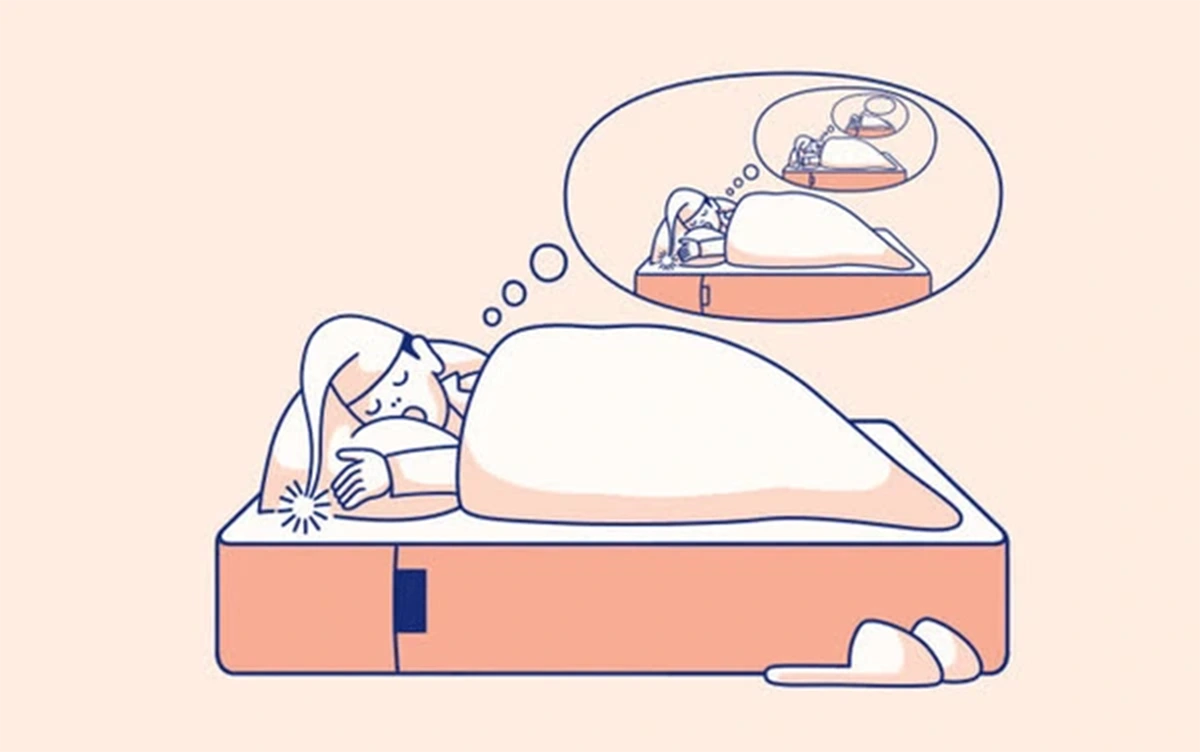Have you ever wondered why the same dream keeps repeating—whether it’s falling, being chased, or returning to the same place? Recurring dreams can feel vivid and unsettling, yet they often hold deeper meaning.
At BTA Feng Shui, we uncover their emotional, psychological, and spiritual significance, exploring common themes, causes, and practical steps to understand and address them.
What Are Recurring Dreams?
Recurring dreams are dreams that repeat with similar themes, settings, or emotions over time. Unlike one-off dreams, these repeated dreams feel significant, often leaving you curious about their purpose.

Research indicates that up to 75% of adults experience recurring dreams, with themes ranging from stressful to mundane or even positive. They may reflect unresolved emotions, unmet needs, or life transitions, acting as your mind’s way of processing complex experiences.
Why Do I Have Recurring Dreams?
Understanding why do I keep having the same dream starts with exploring their potential causes. Experts suggest several reasons for recurring dreams:
- Unresolved Emotions or Trauma: Recurring nightmares or negative dreams often stem from unprocessed emotions, such as grief, anxiety, or past trauma. For example, dreams of being trapped might reflect feelings of helplessness in waking life.
- Unmet Psychological Needs: The need for autonomy, competence, or connection can manifest in repetitive dreams. If you feel disconnected or powerless, your dreams may replay scenarios like failing a test or being chased.
- Stress and Anxiety: Daily stressors, from work pressures to relationship challenges, can trigger recurring bad dreams. Studies link unmet needs to negative dream themes, showing how stress seeps into sleep.
- Medical or Mental Health Conditions: Conditions like PTSD, anxiety disorders, or sleep disorders (e.g., sleep apnea) can increase the likelihood of recurring nightmares. Certain medications, like melatonin, may also contribute.
- Spiritual or Energetic Imbalance: From a Feng Shui perspective, imbalances in your environment or energy flow might influence your subconscious, subtly shaping recurring dream meaning. While not scientifically proven, aligning your space can promote mental clarity and better sleep.

Common Recurring Dream Themes and Their Meanings
Recurring dreams often follow universal themes, each carrying potential insights into your life. Here are some of the most common repetitive dreams and their possible interpretations:
- Falling: Dreams of falling often symbolize a loss of control or fear of failure. They may reflect anxiety about a major life change, like a new job or relationship.
- Being Chased: Recurring dreams about being chased suggest avoidance of a problem or fear in waking life. The pursuer might represent an unresolved issue you’re running from.
- Teeth Falling Out: Linked to anxiety or loss, this dream may reflect concerns about appearance, communication, or significant life changes. Research also connects it to physical dental irritation.
- Being Naked in Public: This classic dream points to vulnerability or fear of judgment. It may indicate a desire to be authentic or anxiety about being exposed.
- Visiting the Same Place: Recurring dreams about the same place, like an old house or unfamiliar city, might symbolize unresolved memories or a longing for familiarity.
- Failing a Test or Being Unprepared: These dreams often tie to self-doubt or pressure to perform, resurfacing during high-stakes situations like job interviews.
- Flying: A positive recurring dream, flying can represent freedom or ambition, though it may also reflect a desire to escape constraints.
- Interacting with a Deceased Loved One: These dreams may reflect grief, longing, or a need for closure, offering comfort or highlighting unresolved emotions.

Children also experience recurring dreams, often involving fantastical threats like monsters or being chased. As they grow, these themes shift to more realistic concerns, like social pressures or academic stress.
What Do Recurring Nightmares Mean?
Recurring nightmares are a subset of repetitive dreams that are particularly distressing, often waking you up with feelings of fear or panic.
They differ from regular recurring dreams because they disrupt sleep and may indicate nightmare disorder if frequent. Common themes include:
- Being attacked or chased
- Facing illness or death
- Experiencing failure or accidents
- Interpersonal conflicts
Recurring nightmares meaning often ties to deeper issues like trauma, PTSD, or chronic stress.
For example, why do I keep having the same nightmare might relate to unresolved trauma, where your mind replays scenarios to process fear or helplessness. Addressing the root cause, often with professional help, is key to reducing their frequency.

How to Stop Recurring Dreams
If recurring dreams or nightmares recurring are bothersome, there are practical steps to reduce or stop them. Here’s how to address how to stop recurring dreams:
- Resolve Underlying Issues: Identify and address emotional or psychological triggers. Journaling about your dreams or discussing them with a trusted friend can uncover patterns.
- Practice Imagery Rehearsal Therapy (IRT): This therapy involves rewriting the narrative of a recurring nightmare with a positive ending. Under a therapist’s guidance, rehearse this new script to reframe the dream.
- Reduce Stress: Engage in stress-relieving activities like meditation, yoga, or deep breathing. Limiting caffeine, alcohol, and screen time before bed can also help.
- Improve Sleep Hygiene: Maintain a consistent sleep schedule, create a calming bedtime routine, and optimize your sleep environment. In Feng Shui, placing your bed in a “commanding position” (facing the door but not directly in line) can promote restful sleep.
- Address Mental Health: Therapy can help manage conditions like anxiety or PTSD that fuel recurring bad dreams. Cognitive Behavioral Therapy (CBT) is particularly effective.
- Consult a Doctor: If you suspect a sleep disorder or medication side effects, consult a healthcare provider. Adjusting medications or treating conditions like sleep apnea can reduce repetitive dreams.
- Keep a Dream Journal: Recording your dreams can reveal recurring themes and triggers, helping you process emotions and gain insight.
- Try Lucid Dreaming: In lucid dreams, you’re aware you’re dreaming and can sometimes control the narrative. Practicing reality checks during the day (e.g., questioning if you’re awake) can help induce lucidity.
Read more:
- Vivid Dreams: Causes, Meanings, and How to Manage Them
- Lucid Dreaming: How to Control Your Dreams?
- Fever Dream Meaning: Why They Happen and What They Reveal
The Role of Environment in Recurring Dreams
While not a primary cause, your sleep environment can influence dream quality. From a Feng Shui perspective, clutter or poor energy flow in your bedroom might contribute to restless sleep and recurring dreams.

Simple adjustments, like decluttering your space or using calming colors (e.g., soft blues or greens), can create a serene atmosphere conducive to better rest. While this complements psychological approaches, it’s not a substitute for addressing emotional or medical causes.
When to Seek Professional Help
If recurring dreams or nightmares recurring disrupt your sleep or daily life, it may be time to seek help. Signs include:
- Frequent nightmares causing daytime fatigue or fear of sleep
- Dreams tied to trauma or mental health conditions like PTSD
- Persistent distress from dream content
A therapist specializing in dream analysis or trauma can offer tailored strategies, such as IRT or CBT. For potential medical causes, a sleep specialist can diagnose conditions like sleep apnea or narcolepsy.
Recurring dreams often signal unresolved emotions or stress. By exploring their themes, you can gain insights into your inner state and take steps—like therapy, stress management, or better sleep habits—to reduce them.
At BTA Feng Shui, we believe balancing your inner and outer environments supports restful sleep and emotional well-being. If this guide helped you, please rate it 5 stars and share it!























